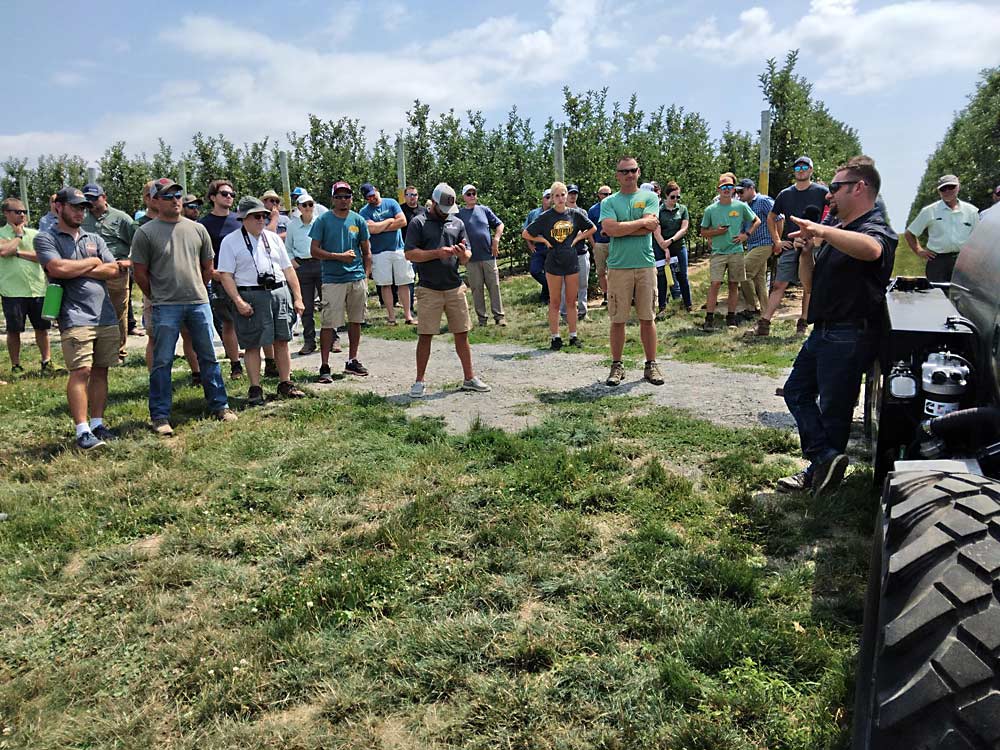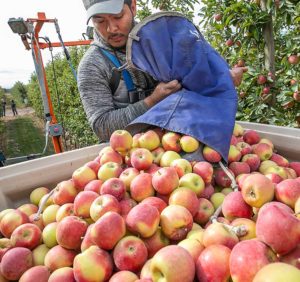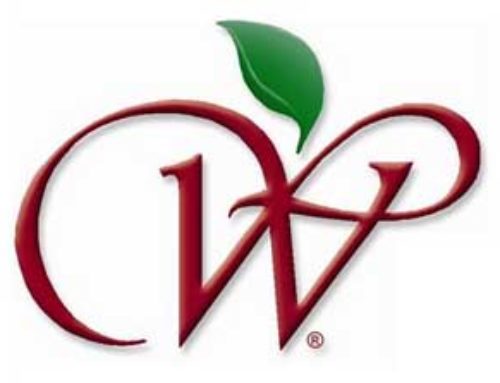
Michigan Pomesters held its 12th annual Ridgefest field day Aug. 3. The hosts were three orchards in the town of Conklin, located in Michigan’s Fruit Ridge region north of Grand Rapids.
The theme of this year’s Ridgefest was farm labor, especially the state of the federal H-2A guest-worker program. Rep. John Moolenaar, R-Mich., who represents most of Michigan’s apple growers in the state’s 2nd Congressional District, and Sen. Debbie Stabenow, D-Mich., who chairs the U.S. Senate Committee on Agriculture, Nutrition & Forestry, both spoke at the field day, discussing the difficulties of the H-2A guest-worker program and stressing the need for bipartisan solutions. Stabenow, who will retire from the Senate at the end of her current term, was given the Michigan Pomesters 2023 Fruit Person of the Year award after her talk.
In the past decade, Michigan fruit growers have come to rely more and more on H-2A workers. Digging deeper into that theme was Katie Vargas, a member of the family that runs Joe Rasch Orchards in Conklin. One of the first Michigan orchards to hire H-2A workers during a pilot program in 2014, Joe Rasch Orchards now completely relies on H-2A labor to pick its apples. In the past two years, the company had one domestic applicant apply for a picker position, and 75 pickers were needed, Vargas told the Ridgefest audience.
“(H-2A) saved our farm,” she said. “There are not people applying for the jobs.”
But if H-2A continues to become more expensive and complicated, it could still mean the end for her orchard and others, said Vargas, who spent five years at Michigan Farm Bureau helping growers navigate the H-2A program before rejoining the family farm.
H-2A wages, calculated by the federal government, keep going up, and growers have no say in the decisions. That lack of control makes it difficult for farms to come up with long-term budgets and marketing plans, she said.
“For a while, H-2A wages would go up a few cents a year,” Vargas said. “In the last seven years, it started to skyrocket.”
The U.S. Department of Labor rolled out new rules for the H-2A program last year, but those reforms only made things more complicated for employers, she said.
The bottom line is that fruit growers need to speak up and make plain the importance of H-2A workers to the survival of their family orchards.
“We have to make our voices heard,” Vargas said. “We can convey our messages to representatives to go out on our behalf, but I think that it’s so much more impactful and effective if they hear it directly from us.”
Ridgefest attendees also saw a block of grafted-over trees at Umlor Orchards, an on-farm nursery at B & L Orchards, and blocks of Ambrosia and MAIA-1 (marketed as EverCrisp) at Ridgeview Orchards. At Ridgeview, they also saw a Mini GUSS autonomous sprayer in action.
—by Matt Milkovich







Leave A Comment